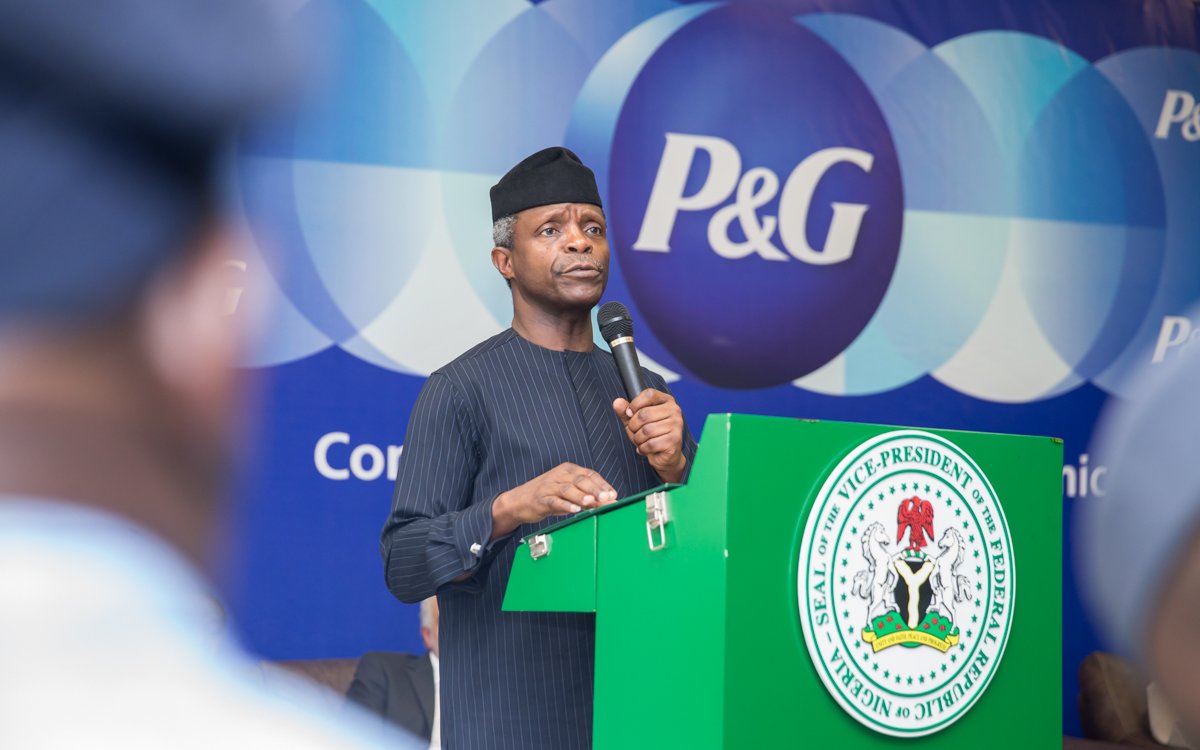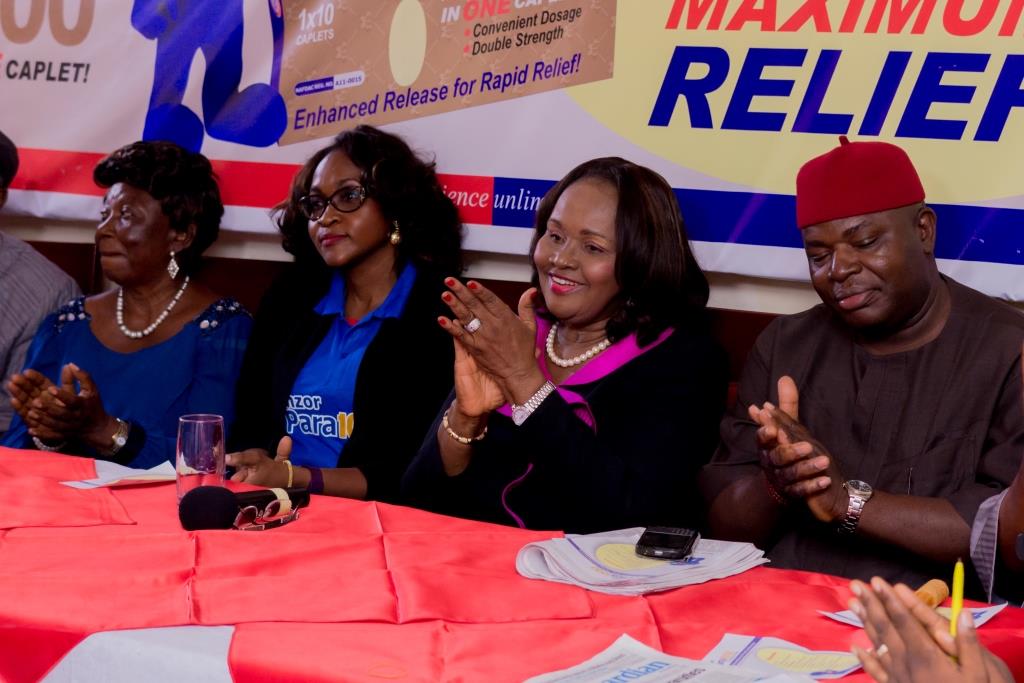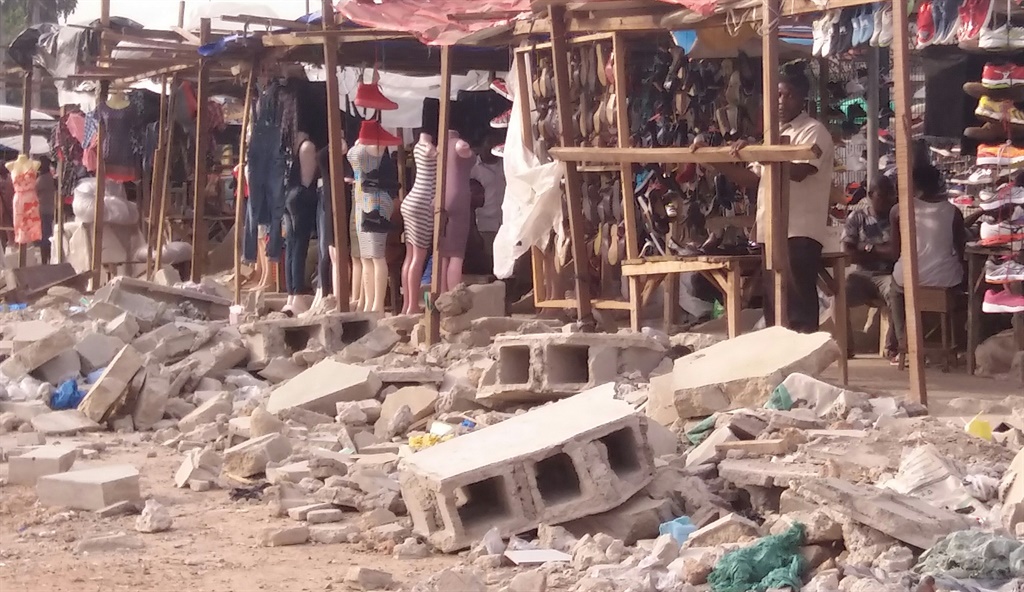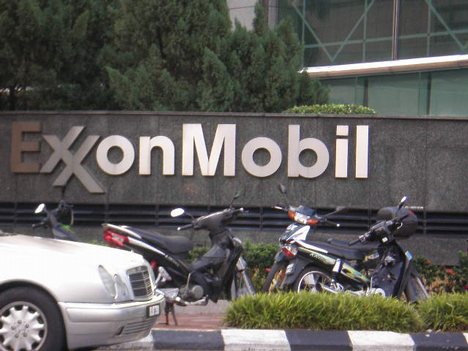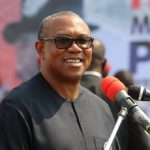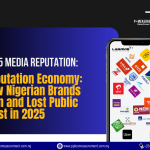Economy
Procter & Gamble to Shut Down $300m Factory in Nigeria, Sacks Workers
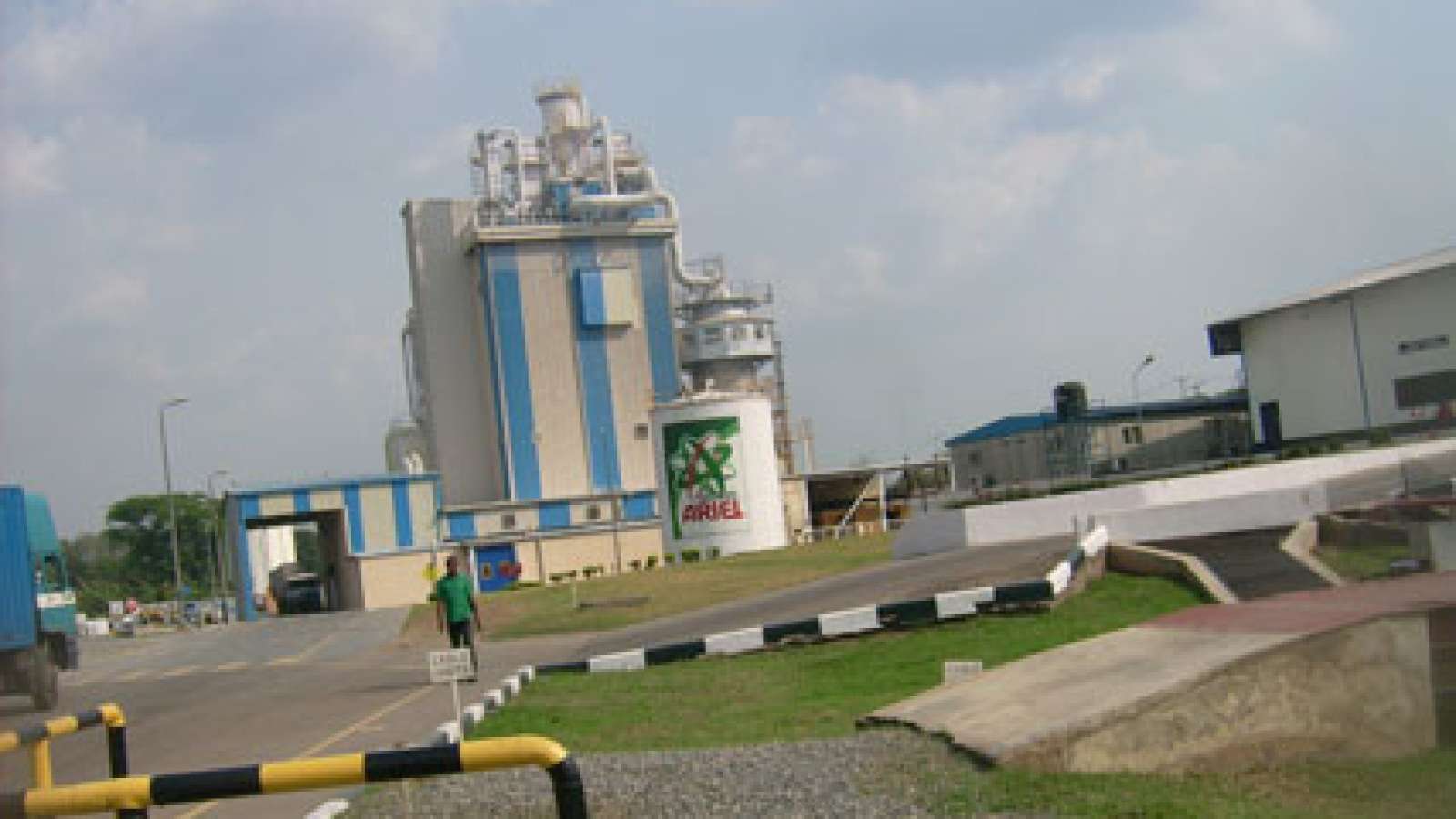
By Modupe Gbadeyanka
Renowned and leading Fast-Moving Consumer Goods (FMCG) company, Procter and Gamble (P&G) is planning to shut down its newly commissioned production plant in Agbara Industrial Estate, Ogun State, Nigeria.
A report by Premium Times said the factory, which gulped about $300 million to complete and was commissioned in June 2017 by Vice President Yemi Osinbajo, had been operating at loss since it started operations.
Frustrated by this, the management has allegedly decided to sell off the plant.
P&G produces popular products like Always sanitary pad, Pampers, Ariel detergent, Oral B toothpaste, Gillete shaving stick, among other products in the Nigerian market.
Quoting a source, Premium Times said about 120 workers are being laid off as part of the shutdown with some of them already receiving their disengagement letters which is to commence next month.
“About 30 staff will be left who may either be outsourced or deployed to our only remaining plant in Nigeria,” a company source informed the newspaper.
It was disclosed in the report that P&G has already sold one of its two plants located in Oluyole Estate in Ibadan, Oyo State as a result of poor earnings.
The company has two production plants in the area, one of which was used to produce Vicks lemon plus and the other Ariel detergent, but the Vicks plant has been sold.
“We had to sell the lemon plus plant in Ibadan. It was not sustainable to continue to run it at a loss,” the source said.
A resident of Oluyole Estate told Premium Times that one of the Ibadan plants, located along Seven-Up Road within Oluyole Estate, is still functioning while the other plant, which has now been confirmed to have been sold, has been moribund for a while.
The P&G source suggested that even the single remaining plant in Ibadan used to produce Ariel detergent is being reviewed.
“We are keeping it open for a while to see if we can sustain it,” the source said.
Insiders familiar with the development told Premium Times that the company is battling with the challenge posed by government policies that regulate importation of raw materials for its production.
A source explained that the cost of importing raw materials was becoming unbearable for the company, which has refused to involve in shady deals in order to cheat the system and ease importation.
“It is so expensive to import these raw materials which are not produced in Nigeria. Other companies take the short cut by manoeuvring the system, but we cannot,” a top official of the troubled firm disclosed.
Similarly, another factor said to be responsible for the shutdown was the unhealthy competition being faced by the company.
“Our competitors invested much less in their factory, can manoeuver their way in the system, and thus produce and sell for much less. We cannot do that.
“Our investment in Agbara is arguably the largest single investment by a non-oil firm in Nigeria. But we just have to shut it. The loss is much,” the source said.
When Premium Times reached out to the corporate communications desk of the company Tuesday morning, a staff of the desk, who declined to make her name known, quickly disconnected the telephone line immediately the questions about the shutdown were put to her.
But in a follow-up call by Premium Times Tuesday afternoon, a customer care attendant of the company told our reporter that no such development had been communicated to the communications team. The staff, who simply identified herself as Peace, said she was not aware of the situation.
“The information about the plant being shut down has not come to our notice. We don’t have the information at hand,” she said.
“So it means the plant is still running. But once we have the information that the plant is shutting down then we can disseminate. But for now we don’t have such information,” she added.
Economy
Presco, GTCO List Additional Shares on Stock Exchange

By Aduragbemi Omiyale
The duo of Presco Plc and Guaranty Trust Holding Company (GTCO) Plc has listed additional shares on the Nigerian Exchange (NGX) Limited.
The extra equities of these two publicly-listed organisations were admitted to the local stock exchange last Friday, increasing their respective total issued and fully paid-up shares.
For Presco, it listed fresh 166,666,667 ordinary shares of 50 Kobo each on the daily official list of the NGX on Friday, January 30, 2026, increasing its total issued and fully paid-up stocks from 1,000,000,000 units to 1,166,666,667 units.
The additional equities were from the rights issue of the firm allotted to shareholders on the basis of one new share for every existing six ordinary shares held as at close of business on Monday, October 13, 2025.
In a circular issued over the weekend, the NGX said, “Trading licence holders are hereby notified that additional 166,666,667 ordinary shares of 50 Kobo each of Presco Plc were on Friday, January 30, 2026, listed on the daily official list of Nigerian Exchange (NGX) Limited (NGX).
“The additional shares arose from the company’s rights issue of 166,666,667 ordinary shares of 50 Kobo each at N1,420.00 per share on the basis of one new share for every existing six ordinary shares held as at close of business on Monday, October 13, 2025.
“With the listing of the additional 166,666,667 ordinary shares, the total issued and fully paid-up shares of Presco Plc has now increased from 1,000,000,000 to 1,166,666,667 ordinary shares of 50 Kobo each.”
As for GTCO, it listed additional125,000,000 ordinary shares of 50 Kobo each at N80.00 per unit offered through private placement.
The fresh equities taken to Customs Street have raised the total issued and fully paid-up shares of GTCO from 36,425,229,514 to 36,550,229,514 ordinary shares of 50 Kobo each.
Economy
FG, States, Local Councils Share N1.969trn FAAC Allocation

By Adedapo Adesanya
A total of N1.969 trillion was shared to the federal government, the 36 state governments and the 774 local government councils from the gross revenue of N2.585 trillion generated by the nation in December 2025.
The money was disbursed to the three tiers of government at the January 2026 Federation Account Allocation Committee (FAAC) meeting held in Abuja.
In a statement issued on Monday by the Director of Press and Public Relations in the Office of the Accountant-General of the Federation (OAGF), Mr Bawa Mokwa, it was stated that the FAAC allocation comprised statutory revenue of N1.084 trillion, distributable Value Added Tax (VAT) revenue of N846.507 billion, and Electronic Money Transfer Levy (EMTL) revenue of N38.110 billion.
“Total deduction for cost of collection was N104.697 billion, while total transfers, refunds, and savings were N511.585 billion,” the statement partly read.
It was also revealed that from the N1.969 trillion total distributable revenue, the federal Government received the sum of N653.500 billion, and the state governments received N706.469 billion, the local government councils received N513.272 billion, and the sum of N96.083 billion was shared with the benefiting state as 13 per cent derivation revenue.
He said of the N1.084 trillion distributable statutory revenue, the central government received N520.807 billion, the state governments got N264.160 billion, the local councils were given N203.656 billion, and N96.083 billion was shared to the benefiting states as 13 per cent derivation revenue.
FAAC noted that from the N846.507 billion distributable VAT earnings, the federal government got N126.976 billion, the state governments received N423.254 billion, and the local government councils got N296.277 billion.
From the revenue from EMTL, Mr Mokwa explained that the national government was given N5.717 billion, the state governments got N19.055 billion, and the councils collected N13.338 billion.
He added that the companies’ Income Tax (CIT)/CGT and STD, Import Duty and Value Added Tax (VAT) increased significantly in December, while oil and gas royalty, CET levies and fees increase marginally, with excise duty, Petroleum Profit Tax (PPT)/Hydrocarbon Tax (HT), and EMTL considerably down.
Economy
Oil Exports to Drop as Shell Commences Maintenance on Bonga FPSO
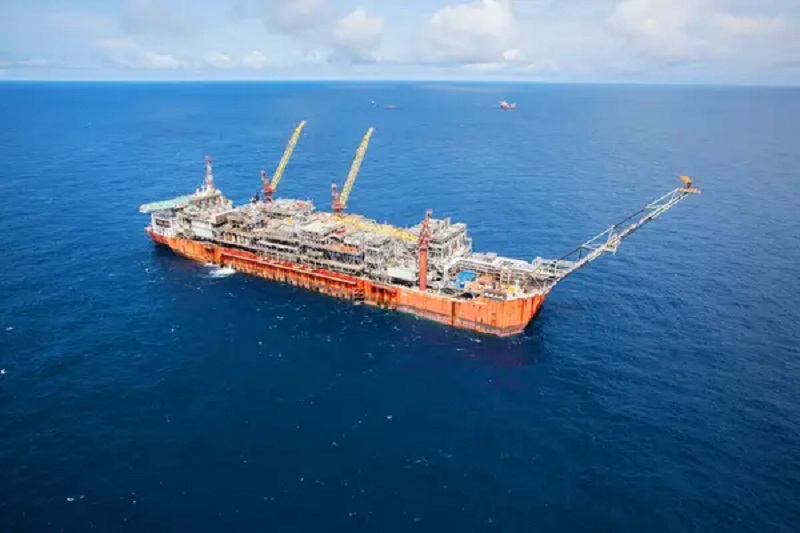
By Adedapo Adesanya
Nigeria’s oil exports will drop in February following the shutdown of the Bonga Floating Production Storage and Offloading (FPSO) vessel scheduled for turnaround maintenance.
Shell Nigeria Exploration and Production Company (SNEPCo) Limited confirmed the development in a statement issued, adding that gas output will also decline during the maintenance period.
This comes as SNEPCo begun turnaround maintenance on the Bonga FPSO, the statement signed by its Communications Manager, Mrs Gladys Afam-Anadu, said, describing the exercise as a statutory integrity assurance programme designed to extend the facility’s operational lifespan.
SNEPCo Managing Director, Mr Ronald Adams, said the maintenance would ensure safe, efficient operations for another 15 years.
“The scheduled maintenance is designed to reduce unplanned deferments and strengthen the asset’s overall resilience.
“We expect to resume operations in March following completion of the turnaround,” he said.
Mr Adams said the scope included inspections, certification, regulatory checks, integrity upgrades, engineering modifications and subsea assurance activities.
“The FPSO, about 120 kilometres offshore in over 1,000 metres of water, can produce 225,000 barrels of oil daily.
“It also produces 150 million standard cubic feet of gas per day,” he said.
He said maintaining the facility was critical to Nigeria’s production stability, energy security and revenue objectives.
Mr Adams noted that the 2024 Final Investment Decision on Bonga North increased the importance of the FPSO’s reliability. He said the turnaround would prepare the facility for additional volumes from the Bonga North subsea tie-back project.
According to him, the last turnaround maintenance was conducted in October 2022.
“On February 1, 2023, the asset produced its one billionth barrel since operations began in 2005,” Mr Adams said.
SNEPCo operates the Bonga field in partnership with Esso Exploration and Production Nigeria (Deepwater) Limited and Nigerian Agip Exploration Limited, under a Production Sharing Contract with the Nigerian National Petroleum Company (NNPC) Limited.
The last turnaround maintenance activity on the FPSO took place in October 2022. On February 1, the following year, the asset delivered its 1 billionth barrel of oil since production commenced in 2005.
-

 Feature/OPED6 years ago
Feature/OPED6 years agoDavos was Different this year
-
Travel/Tourism9 years ago
Lagos Seals Western Lodge Hotel In Ikorodu
-

 Showbiz3 years ago
Showbiz3 years agoEstranged Lover Releases Videos of Empress Njamah Bathing
-

 Banking8 years ago
Banking8 years agoSort Codes of GTBank Branches in Nigeria
-

 Economy3 years ago
Economy3 years agoSubsidy Removal: CNG at N130 Per Litre Cheaper Than Petrol—IPMAN
-

 Banking3 years ago
Banking3 years agoSort Codes of UBA Branches in Nigeria
-

 Banking3 years ago
Banking3 years agoFirst Bank Announces Planned Downtime
-

 Sports3 years ago
Sports3 years agoHighest Paid Nigerian Footballer – How Much Do Nigerian Footballers Earn


